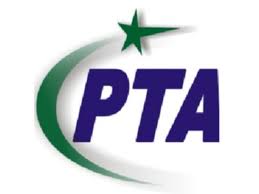The Pakistan Telecommunication Authority (PTA) has called for an increase in national bandwidth capacity to address challenges posed by the growing use of virtual private networks (VPNs) and network disruptions.
These recommendations were included in a report submitted to the Ministry of Information Technology, following an investigation into persistent internet slowdowns.
Sources revealed that the PTA’s report highlights technical difficulties experienced by telecom operators, particularly in handling increased data demands from VPN users and general web browsing. The report also pointed to complications stemming from restrictions on specific platforms, including the temporary blockade of X (formerly Twitter), which added to the strain on networks.
The PTA emphasized that addressing these issues would require significant infrastructure upgrades to enhance internet speeds and ensure seamless connectivity for users.
Separately, the PTA said that internet services across Pakistan will continue to experience slow speeds, as efforts to reroute traffic from a damaged submarine cable near Qatar face delays.
The Asia-Africa-Europe-1 (AAE-1) cable, one of seven submarine internet cables connecting Pakistan, developed a fault near Qatar on Thursday, reducing the country’s available bandwidth by at least one terabit per second (tbps).
Typically, in such cases, traffic from the affected cable is transferred to other cables to maintain smooth internet connectivity. However, the rerouting of AAE-1 traffic has been delayed by more than 36 hours, further impacting internet speeds nationwide.
Earlier, on Thursday, the PTA disclosed, during a heated Senate Standing Committee on Information Technology session, that internet shutdowns across the country are implemented either on government or court directives.
Senator Kamran Murtaza of JUI-F challenged the legal grounds for the frequent internet shutdowns, stating, “Which law permits this? How can services be disrupted without a clear legal basis?”
In response, the PTA chairman asserted that such decisions were made on instructions from the government. “If this is illegal, why has the government been directing us to do so for nine years?” he asked, adding that the interior ministry must clarify the legality of its directives.
Senator Murtaza criticized the impact of shutdowns, saying they disrupt education, businesses, and access to resources. “This is akin to pushing people into ignorance for political purposes,” he remarked.
PTI Senator Mohammad Humayun Mohmand echoed concerns, stating, “The rules mention blocking content, not entire networks.”
The PTA chairman defended the Authority’s actions, arguing that many shutdowns were implemented under orders from the Supreme Court or high courts. “These are official directives. Everyone here has been part of a government at some point and knows how these decisions are made,” he said.
On the issue of slow internet speeds, Rehman emphasized that inadequate fiberisation was the root cause. He added that improving digital infrastructure was the government’s responsibility, without which slow speeds would persist.
The committee demanded detailed legal opinions from the Ministries of Law and Interior to clarify the overlap between PECA regulations and the directives enabling internet shutdowns. Members stressed the urgency of establishing a clear legal framework to prevent unwarranted disruptions in the future.




